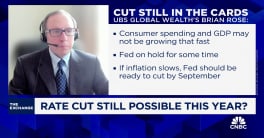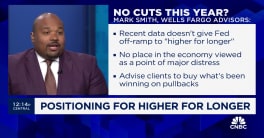With one exception, fixed rate mortgages (FRMs) increased during the week ended January 25 according to both Freddie Mac and the Mortgage Bankers Association (MBA) but both organization's surveys recorded a decline in rates for adjustable (ARM) products. This, however slightly, changed the yield curve in favor of ARMS which have been fairly unpalatable to consumers over the last year.
Freddie Mac's Primary Mortgage Market Survey for the week
ended January 25 indicated that the 30-year fixed-rate mortgage averaged 6.25
percent compared to 6.23 the previous week. Points remained unchanged at 0.4.
One year ago the rate for the 30-year ARM was 6.12 percent.
The 15-year FRM was the only product that remained unchanged from the previous
week when it averaged 5.98 percent and 0.4 point. This figure was 28 basis points
higher than the same week in 2006.
The five-year Treasury-indexed hybrid ARM dropped four basis points to 6.0 percent and fees and points also went down from 0.5 to 0.4. One year ago the 5/1 hybrid averaged 5.75 percent. This decline in the 5/1 narrows the gap but still means that its rate remains above the 15 year ARM; an inverted yield curve that has not changed much in the last year.
The one-year Treasury indexed adjustable rate mortgage dropped from 5.51 percent to 5.49 percent with fees and points unchanged. At this time last year the one-year carried an average rate of 5.20 percent.
According to Frank Nothaft, Freddie Mac vice president and chief economist, "Mortgage rates were mixed this week on news that December's leading indicators signaled steady growth in the coming months. In the housing market, December's new construction came in stronger than expected despite a decline in one-unit residence starts. Over the coming week, a flurry of reports will provide further readings on the strength of the housing market and economic conditions. Primary among these will be the first estimate of fourth quarter GDP growth, and we could see interest rates change in response."
(The Federal Reserve, meeting on January 31, was expected to leave federal rates unchanged.)
MBA's report on its Weekly Mortgage Applications Survey for the week ended January 26 essentially mirrored the Freddie Mac data although changes, in most cases were more dramatic. 30-year FRMs increased to 6.29 from 6.22 percent with points, including the origination fee, increasing to 1.07 from 0.97.
15-year fixed-rate mortgages increased to 6.01 percent from 5.93 percent; points increased to 1.07 from 1.02, and one-year ARMs decreased to 5.86 percent from 5.91, with points increasing to 0.83 from 0.81.
Mortgage application activity was up slightly both week-over-week and year-over-year. Applications increased 3.2 percent on a seasonally adjusted basis over the previous week and 5.9 percent when unadjusted. Compared to last year at this time applications were running at a pace that is 0.7 percent higher.
Refinancing's piece of the cake was down again, undoubtedly reflecting rising rates, to 47.4 from 47.8 percent while the share of adjustable rate mortgages rose slightly from 20.3 percent to 21.4.







